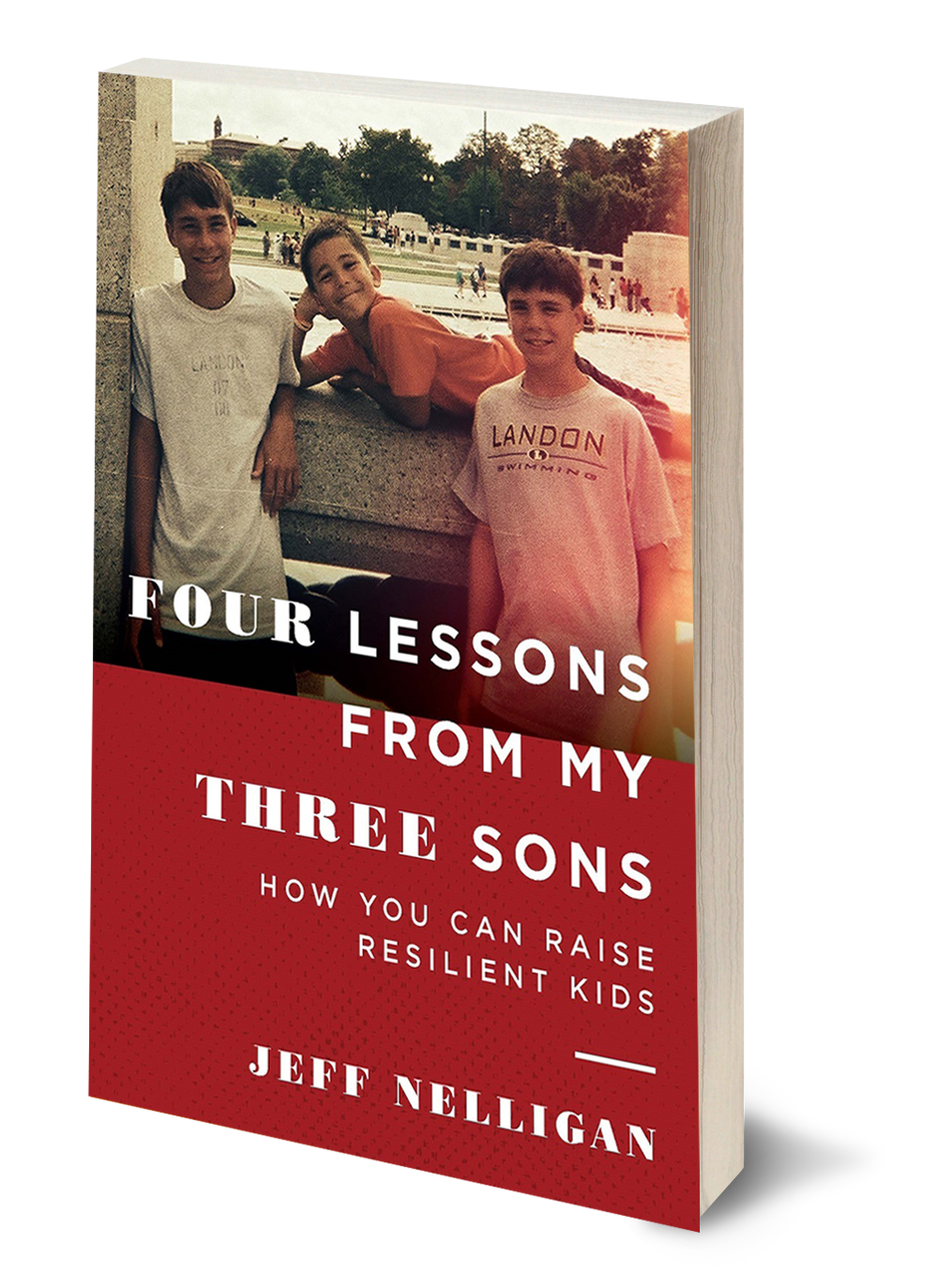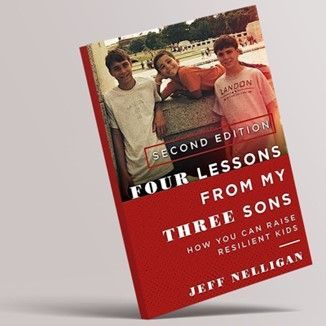How do you get kids to pay attention?!
Judge the real world around you with humor and authenticity.
As a follow-on from the two previous blawgs about having a plan for raising children with character, confidence, resilience and ambition, here came the hardest part:
How does a Mom or Dad drive home the importance of these personal characteristics? How do you shape this behavior?
Here’s the parent’s long-suffering lament: How do you get a kid to pay attention?
It was crazy to think I could simply tell my sons at regular intervals, “Hey boys, listen up. You need to be good kids. No joke – the old man means it. Now go do your homework.” C’mon, no reasonable parent operates that way. Kids hear that
refrain and roll their eyes. I would.
Additionally, no Dad or Mom can monitor a child’s every moment and actually see how the kid is carrying himself or herself throughout the day. Few fathers or mothers are around their kids during the bulk of the day – that’s what having a job is all about.
That’s why I knew my best shot at guiding my sons – and yes, sometimes getting under their skin - was during those times when two, three, or all four of us were together in all those places we take for granted but are in fact one big classroom:
The vast panorama of the Real World.
Yes, the neighborhood, the grocery store and the barber shop, restaurants and malls, the dance studios and playing fields and family outings and all the places outside the front door. It is here that you find all the examples of human behaviors
and actions you’ll ever need. Daily life relentlessly offers up events where you encounter the good, the bad and the inspirational in human nature, all of which you can point out to your kids. People and places do the work for you – you just have to explain it.
And judge it.
Yes, judge it. To use the popular phrase: See something, say something. And why shouldn’t you? If it’s the polite behavior of an adult opening a door for a senior or engaging shy parents in friendly conversation, point it out. If it’s an adult being
rude to others or kid being a jerk to another kid, point that out as well.
Alas, I can hear it now from the Sensitivity Brigade: ‘It’s not fair to judge others. It’s sooooo hurtful. It’s wrong!’ Get real. Here’s a quick test: Try to go one hour without judging anyone or anything. It’s impossible. Indeed, right this moment you’re judging what you’ve just read. And judging me.
The fact is, every single one of us makes judgemnts about people and situations throughout our day. It’s the only way we navigate successfully through life.
Here’s how it worked for me and my three sons: From their earliest ages onward I identified situations in the everyday flow of life that would provide the boys practical and moral instruction on how they themselves should behave when they
were confronted with an identical or similar circumstances. I’d then frame the event with a whimsical pronouncement, abrupt and offbeat, that captured the essence of the situation.
These “sayings” – as my sons instantly began calling them – were short, funny and memorable. You’ll read about 12 of them shortly.
Moreover, they were easy for the boys to understand and completely applicable to their lives; the saying would be forever associated with that particular instance or person.
What?! Wait. I know what you’re thinking right now: “You mean you helped guide the conduct and the attitude of your kids with anecdotes and offbeat exhortations?!”
Yes. If you don’t believe me, please buy my book and jump to Appendix D. I'll wager you'll get the picture.
And now, four key admonitions:
1. Get this in your head: Everyday life is, to use a useful phrase, a “teaching moment.”
2. Less is more, particularly with kids. When we saw something unfolding, I didn’t have time for long explanations and involved morality plays; my sons simply would not have paid attention to that jive. Platitudes are hot air; the real world can
be hot as a furnace.
3. Say it with me: Humor always triumphs. The light touch is always memorable. No kid responds to lectures but kids do respond to a gag, a one-liner, a quip. It will be remembered and with kids, it means it will be repeated over and over again.
4. There were no boundaries. I sugarcoated nothing and spared no one, not even myself, as you’ll see. I didn’t worry about “hurt feelings” or about “making a scene.” I said what I believed in a way that I knew would get their attention.
The parent who is candid, even at his or her own expense, is the parent a kid respects. It's the parent to whom the kid will pay attention.
Next up: REPETITION BUILDS CHARACTER. Let me repeat….
SITE TOPICS
Parenting, Dads and sons, raising boys, resilient kids, child psychology, self-help, personal growth, youth athletics, U.S. Naval Academy, Williams College, West Point.
Privacy Policy
Privacy Policy











